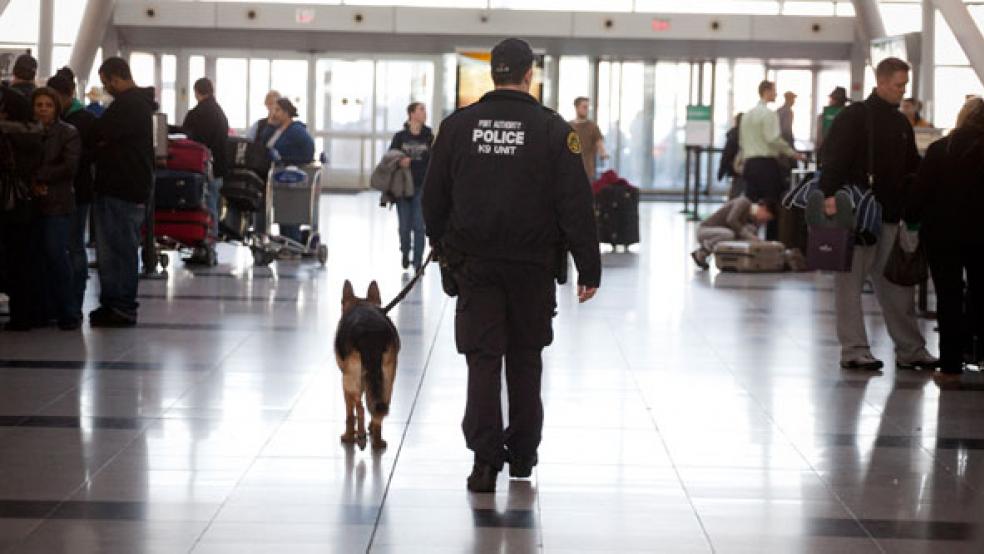A few weeks after the deadly ISIS attacks in Paris, congressional lawmakers are focusing on revamping the U.S. visa waiver program.
A counterterrorism task force made up of top Republican committee chairs rolled out a bill on Thursday aimed at tightening the waiver effort, which allows citizens from 38 countries to travel to the U.S. without a visa for 90 days. Democrats have also pushed for changes in the wake of the ISIS attack that left 130 people dead.
Related: Is There Really a ‘Christian Genocide’ in Syria and Iraq?
“It's a response in many ways to what happened in Paris," said Homeland Security committee chair Michael McCaul (R-TX) said during a Capitol Hill press conference. "Several of the Paris attackers carried Western passports. That is why this legislation is so important. It will strengthen the visa waiver program.”
“Five thousand Western passport holders have traveled to Iraq and Syria,” House Majority Leader Kevin McCarthy (R-CA) noted. “This is why this is needed now to be able to combat this.”
“This bill will become law,” he added.
The proposed legislation, which could be voted on as soon as next week, is a far cry from the bill lawmakers overwhelmingly approved less than a week after the horrific attack, which was carried out by European nationals who pledged allegiance to the terror group.
That measure required the FBI director to “certify” each individual refugee to the Homeland Security Secretary and the Office of the Director of National Intelligence before he or she is allowed into the country.
Related: Funding for Syrian Refugees Could Spark a Big Fight in Congress
Setting up the infrastructure for the program was expected to take weeks or months, essentially freezing President Obama’s effort to resettle 10,000 migrants inside the country. Senate Democrats indicated they would filibuster the bill in the upper chamber and the White House said the president would veto the measure if it ever made it to his desk.
That led to speculation that the legislation would be tacked on to a must-pass omnibus spending bill to keep the federal government funded until next September. The White House didn’t rule out vetoing the expected $1.1 trillion measure if the refugee legislation was attached, raising the chances of another government shutdown.
The bill unveiled Thursday has given lawmakers -- and the administration -- an escape hatch.
Among other things, the new legislation would prevent people from participating in the visa waiver program if they’ve traveled to Iraq, Syria, Iran or Sudan since 2011, or possess dual citizenship with any of those countries.
Related: Ryan’s Next Big Challenge: Prevent Another Government Shutdown
It would allow Washington to freeze a nation’s participation in the effort if they don’t share information about possible national security threats with the U.S. The bill also urges countries to move faster to adopt e-passports with microchips, which are more resistant to fraud.
Despite the white-hot political rhetoric that surrounded the House vote two weeks ago, Republicans and Democrats now seem to be on the same page.
“We’ve all been interested in tightening the visa waiver program,” House Minority Leader Nancy Pelosi (D-CA) said Thursday, noting there had been a bipartisan meeting about the proposed bill the night before.
She estimated 20 million people come into the U.S. each year, and a few “may not have the best intentions.”
Pelosi said the task force’s bill strikes a balance and marks “another occasion where we can work together to get something done.” She predicted it would be signed into law.
However, she rejected the idea of attaching it to the omnibus, preferring it get its own standalone vote.
“I’m not a big supporter of getting as much policy as possible in the omnibus bill,” Pelosi said.” I know many more people will want to vote for the visa waiver program than will want to vote for the omnibus bill.”





